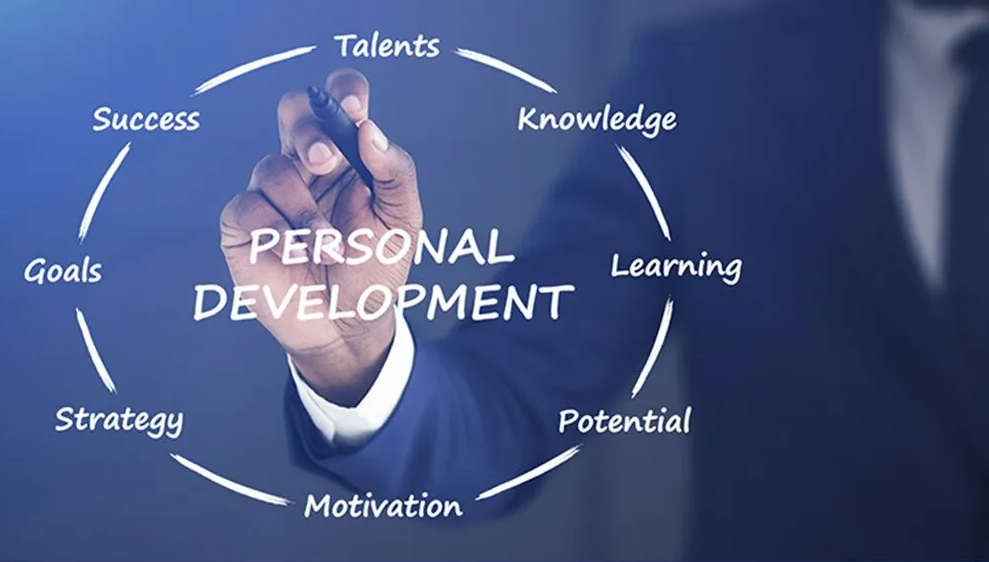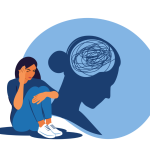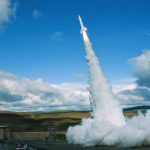Personal Growth and Development
Personal growth and development is the lifelong process of striving for a better self, either socially, spiritually, physically, mentally, or emotionally. What “better” means in this case will be unique to each person’s circumstances—and it’s something you can only define for yourself. Personal growth is generally intentional and self-directed, involving steps taken to improve oneself through building healthy habits, learning important skills, or gaining self-awareness. This article explores various facets of personal growth and development, offering insights into emotional intelligence, spiritual growth, social development, goal setting, lifelong learning, and balancing personal and professional growth.
Key Takeaways
- Personal growth is a unique and lifelong journey that involves improving oneself in various aspects such as emotional, spiritual, and social dimensions.
- Emotional intelligence plays a crucial role in personal development, helping individuals recognize and manage their emotions and improve their relationships.
- Spiritual growth is not limited to religious beliefs but involves connecting with oneself, aligning values with actions, and practices like meditation.
- Effective communication, empathy, and building strong relationships are essential components of social development and interpersonal skills.
- Balancing personal and professional growth is key to finding fulfillment beyond financial success and maintaining a healthy work-life balance.
Understanding Personal Growth and Development
Personal growth and development is the lifelong process of striving for a better self, either socially, spiritually, physically, mentally, or emotionally. What “better” means in this case will be unique to each person’s circumstances—and it’s something you can only define for yourself.
Defining Personal Growth
Personal growth is generally intentional and self-directed. It refers to steps taken or techniques used to improve oneself, whether that’s through building healthy habits, learning important skills, or gaining self-awareness. Personal growth should focus on you and the things you have the power to change and improve within yourself or your environment.
The Importance of Self-Improvement
Self-improvement focuses on enhancing specific skills or qualities, aiming for immediate, tangible improvements. In contrast, self-development is a holistic approach that encompasses various aspects of life. Remember that unlike a specific goal with a defined achievement, you may be working on your personal growth for life.
Personal Growth vs. Professional Growth
For entrepreneurs, personal and professional growth can be linked. For example, a personal development journey can contribute to increased confidence to start a business or take an existing one to the next level. However, personal growth is entirely, well, personal. There are countless ways to improve yourself, so don’t let this list limit you!
The Role of Emotional Intelligence
Recognizing and Managing Emotions
Emotional personal growth and development refers to steps you can take to get in touch with and manage your feelings. Understanding your emotions can help you make decisions that put your wellbeing first. Developing your emotional intelligence can also improve your relationships with those around you.
Building Emotional Resilience
Building emotional resilience involves nurturing your ability to bounce back from setbacks. This can be achieved through practices such as mindfulness, self-reflection, and maintaining a positive outlook. Emotional intelligence helps you build stronger relationships, succeed at school and work, and achieve your career and personal goals.
Improving Relationships Through Emotional Intelligence
Improving relationships through emotional intelligence involves recognizing and managing your own emotions as well as understanding and influencing the emotions of others. This can lead to more effective communication, deeper connections, and a more harmonious social environment.
Developing emotional intelligence is a continuous journey that requires dedication and practice. It can significantly enhance your personal and professional life, leading to greater fulfillment and success.
Spiritual Growth and Self-Connection
Practices for Spiritual Growth
Spiritual growth isn’t limited to a religious belief. Personal development in this area can refer to actions you take to connect with yourself, your values, and your environment. The practice of meditation, for example, can increase self-awareness on a path to spiritual growth.
Aligning Values with Actions
Success in my eyes is the combination between what your soul is guiding you to and you listening to it and taking action. It’s the lack of failure, regardless of what happens. In short, personal and spiritual growth go hand in hand – if you want to realize your potential, you need to mesh these two together.
The Impact of Meditation
Meditation is a powerful tool for fostering peace and mindfulness. It helps in letting go of things that are not you, or things you don’t want to hold on to (beliefs, trauma) and working with your innate qualities instead of trying to gain new ones.
Discover 10 spiritual wellness activities in our guide to enhance your connection with your inner self and foster peace and mindfulness.
Social Development and Interpersonal Skills
Building Strong Relationships
Personal growth and development can happen through relationships with others. Social isolation has been found to shorten life span, and loneliness can impact both mental and physical health. Social personal development can refer to steps you take to build and grow positive relationships with family and friends, or through career networking.
Effective Communication Techniques
Interpersonal skills involve the ability to communicate and build relationships with others. Often called ‘people skills’, they tend to incorporate both verbal and non-verbal communication. Mastering these skills can significantly improve your personal and professional life.
The Importance of Empathy
Empathy is crucial for building strong interpersonal connections. It allows you to understand and share the feelings of others, fostering deeper and more meaningful relationships. Practicing empathy can lead to better communication and a more supportive social environment.
Developing strong interpersonal skills can greatly enhance your social life and overall well-being.
Setting and Achieving Personal Goals
Identifying Your Goals
Setting goals and then taking small, achievable steps towards reaching them is an example of personal growth. Identifying your goals is the first step in this journey. Reflect on what you truly want to achieve in different areas of your life, whether it’s personal, professional, or spiritual. This reflection will help you create a clear vision of your desired outcomes.
Creating a Plan of Action
Once you have identified your goals, the next step is to create a plan of action. Break down your goals into smaller, manageable tasks. This approach makes it easier to track your progress and stay motivated. Consider using tools like to-do lists, planners, or digital apps to organize your tasks and set deadlines.
Overcoming Obstacles
Achieving your goals is not always a smooth journey. You may encounter obstacles that challenge your determination and resilience. It’s important to stay focused and adaptable. Here are some strategies to overcome obstacles:
- Stay Positive: Maintain a positive mindset and believe in your ability to achieve your goals.
- Seek Support: Don’t hesitate to ask for help from friends, family, or mentors.
- Learn from Failures: View setbacks as learning opportunities and adjust your plan accordingly.
Remember that unlike a specific goal with a defined achievement, you may be working on your personal growth for life. While the first stages of personal growth require more intervention and deliberate steps, the continual improvement may begin to happen naturally as you develop habits.
By following these steps, you can set and achieve your personal goals, leading to a fulfilling and purposeful life.
The Journey of Lifelong Learning
Embracing New Skills
Lifelong learning is a journey of growth and discovery. It requires a commitment to self-discovery, positive habits, and a continuous journey towards becoming the best version of oneself. Remember that unlike a specific goal with a defined achievement, you may be working on your personal growth for life. While the first stages of personal growth require more intervention and deliberate steps, the continual improvement may begin to happen naturally as you develop habits.
The Benefits of Continuous Education
It is not a novelty that once they finish college most adults do not cultivate the habit of reading. But what would happen if it were the other way around? If each person read about topics that are interesting and continue to grow as the years go by.
This point doesn’t sound so farfetched by the fact that Internet access is almost universal today, but unfortunately, it is not the majority of the society that continues to learn with the only goal of knowing more.
Staying Curious and Open-Minded
You may need to experiment with different methods or tools before you find a learning style or technique that works for you—and most importantly, one that you’ll stick with.
- Set goals and identify the tools and tactics that are most effective for you.
- Embrace new skills and knowledge with an open mind.
- Stay curious and committed to your personal growth journey.
Balancing Personal and Professional Growth
Integrating Personal Development into Your Career
Navigating the delicate dance between personal growth and self-care involves more than just pressing pause; it’s about orchestrating a harmonious balance. Stepping back from the constant push for improvement doesn’t equate to waving the white flag on progress. Instead, it’s a strategic move toward finding equilibrium—a sweet spot where the pursuit of betterment harmonizes seamlessly with the essential practice of self-care. By weaving regular breaks into our growth journey, we not only safeguard our mental and emotional health but also find strategies to balance our professional and personal life to harness ambition in careers without sacrificing mental and emotional health.
Finding Fulfillment Beyond Financial Success
In the end, a big question that comes up is how do you balance achieving with enjoying? How do you balance achieving your goals with really enjoying the life you have? The key is a balance between these two forms of growth. Instead of taking a vacation from your busy goal-setting schedule by cutting off personal growth entirely, why not take a trip to the other side of personal development and have some lateral growth?
Maintaining Work-Life Balance
Being successful in life and business often comes with hard work. A focus on personal growth can keep you motivated toward achieving goals, no matter how many challenges you face. Whether you’re working on spiritual growth, improving self-care, or arming yourself with essential skills, your personal growth and development journey will be unique. Set goals and identify the tools and tactics that are most effective for you. It’s time to conquer the world!
Personal development is a journey, not a destination. However, a goal is a powerful motivator. It’s important to build in pit stops or checkpoints in the same way you would while growing a business. Along your path, set mini goals and pace yourself. Betterment takes time—but it’s also worth celebrating.
Conclusion
Personal growth and development is a deeply individual and lifelong journey that encompasses various aspects of our lives, including social, spiritual, physical, mental, and emotional dimensions. It is a continuous process of striving to become a better version of oneself, driven by intentional and self-directed efforts. Whether through building healthy habits, learning new skills, or gaining self-awareness, personal growth is about making meaningful changes that align with one’s values and aspirations. As you embark on your own personal growth journey, remember that it is unique to you and should be guided by your own goals and the tools that work best for you. Embrace the challenges and celebrate the progress, for it is through this journey that you will find fulfillment and a deeper connection with yourself and the world around you.
Frequently Asked Questions
What is personal growth and development?
Personal growth and development is the lifelong process of striving for a better self, either socially, spiritually, physically, mentally, or emotionally. What “better” means in this case will be unique to each person’s circumstances—and it’s something you can only define for yourself.
How is personal growth different from professional growth?
Personal growth generally refers to self-directed improvement in various aspects of life, such as building healthy habits or gaining self-awareness. Professional growth, on the other hand, involves developing skills and qualities that enhance one’s career and employability.
What are some examples of personal growth and development?
Examples of personal growth and development include improving self-care, learning new skills, increasing self-awareness, and working on emotional intelligence. The focus should be on aspects you have the power to change within yourself or your environment.
How does emotional intelligence contribute to personal growth?
Emotional intelligence involves understanding and managing your emotions, which can help you make decisions that prioritize your well-being. It can also enhance your relationships with others by improving communication and empathy.
What practices can aid in spiritual growth?
Spiritual growth can be fostered through practices such as meditation, aligning your values with your actions, and increasing self-awareness. These practices help you connect with yourself, your values, and your environment.
Why is lifelong learning important for personal growth?
Lifelong learning keeps you motivated and adaptable, helping you acquire new skills and knowledge continuously. It encourages curiosity and open-mindedness, which are essential for personal development and facing new challenges.
“`

